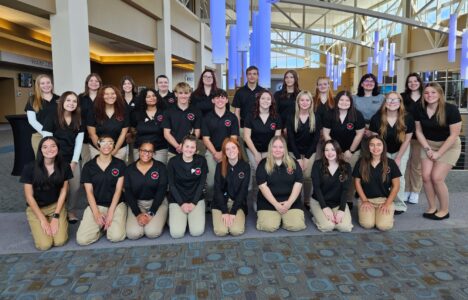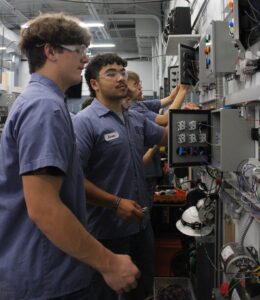USDA grant plants seeds of learning
STEUBENVILLE — The Steubenville City School District has gained a $100,000 grant from the U.S. Department of Agriculture to plant more seeds of learning and benefit students and the community.
Shana Wydra, district director of STEM and career-technical education, said the district has obtained two grants during the past four years with the latest being allocated this summer. All of the funding will be used for a USDA Farm to School Implementation Project to enhance its current agriscience program.
Wydra said the initial grant was used to erect a greenhouse at the McKinley STEM Academy and purchase smaller greenhouses for the Steubenville High School, Harding Middle and Pugliese West and East Garfield Elementary buildings. The most recent allotment will expand those capabilities at the new STEM building at SHS.
“Steubenville City Schools will use grant funds to purchase additional greenhouses and build outdoor learning spaces,” she said. “We’ve done this program at McKinley STEM and will replicate it at the high school.”
Wydra added that grant funds will also help acquire hydroponic growing trays and supplies to significantly expand the space Steubenville City Schools staff and students can access to grow produce and flowers with the community. The produce will be shared with students, included in school meals, shared with families and also sold to local restaurants.
Meanwhile, flowers will be used in fundraisers that generate sustainability funds for agricultural programming and fields will be established to grow corn and pumpkins. There will be space for beekeeping and honey harvesting and funds will also increase access to agricultural education, dramatically expanding the amount of space staff can access to provide immersive learning experiences for students.
“Additionally, this will increase local procurement capabilities as Steubenville is able to grow and harvest larger quantities of produce for student consumption,” Wydra continued. “This will benefit our students with healthier choices in school meals, expanded access to healthy snacks, increased knowledge in hydroponics, planting, harvesting and beekeeping, and increased academic skills and performance through cross-curricular activities.”





